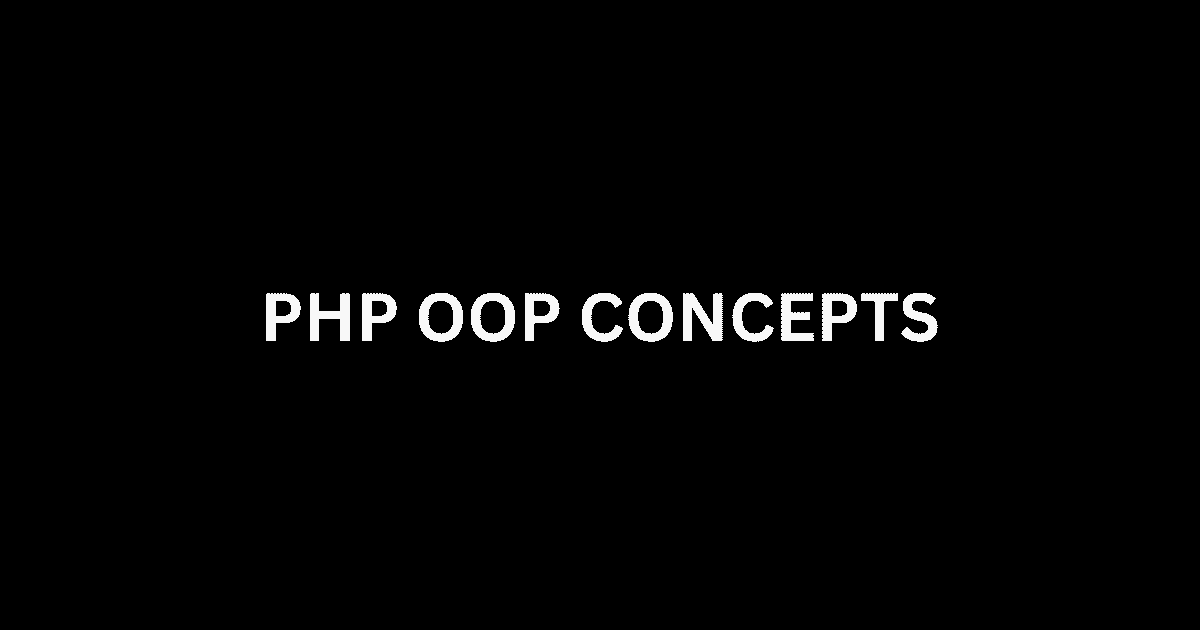This PHP OOP(object-oriented programming) post will help you learn all PHP concepts in an easy way.
PHP supports object-oriented programming(OOP) features from PHP version 5.0.
Object-Oriented programming(OOP) is one of the most popular approaches or paradigms.
PHP OOP is a programming model organized around Objects rather than actions and data rather than logic.
PHP Object-Oriented programming makes your complex application simpler and easily manageable.
We have divided all OOP concepts into the following chapters. let’s check each in detail.
Table of Contents
Chapter 1. Objects And Classes
Objects & Classes – these are the basic concepts of PHP OOP.
Chapter 2. Constructor
Constructor – this will explain to you the constructor php oop concept and how to use it into your real life code example.
Chapter 3. Destructor
Destructor – in this chapter you will learn how to use destructor to clean resources when the object is deleted in your php script.
Chapter 4. Properties in PHP OOP
Typed Properties – show you how to add type hints to class properties.
Readonly Properties – use the read-only keyword to define read-only properties that can be initialized once within the class.
Chapter 5. Inheritance in PHP OOP
Inheritance – how to extend a class for code reuse using inheritance.
Chapter 6. Abstract classes in PHP OOP
Abstract Class – this will guide you on how to use abstract classes and how to use them effectively.
Chapter 7. Interfaces
Interface – this will explain to you the interface concept and how to create interfaces in PHP OOP.
Chapter 8. Polymorphism
Polymorphism –this will explain the polymorphism concept and show you how to implement polymorphism in PHP using abstract classes or interfaces.
Chapter 9. Traits
Traits – introduce you to traits in PHP OOP.
Chapter 10. Static methods & properties
Static Methods and Properties – show you how to use static methods and properties.
Class constants – learn how to define class constants using the const keyword.
Late Static Binding – introduce the late static binding concept and how to use it effectively.
Chapter 11. Working with
Serialize Objects– how to use the serialize() function to serialize an object into a binary string and how to use the __serialize() and __sleep() magic methods
Unserialize Objects – this will guide you in using the unserialize() function to convert a serialized string into an object. Also, discuss the __wakeup() and __unserialize() magic methods.
Cloning Objects – This will show you how to copy an object.
Comparing Objects – how to compare two objects in PHP oop script.
Anonymous class – how to define a class without a declared name in PHP.
Chapter 12. Namespaces
PHP Namespace – how to use namespaces to group the related classes in php script.
Chapter 13. Autoloading
Autoloading Class files – learn how to use load classes automatically in php script.
Autoloading using Composer – This will show you how to use Composer to autoload classes in php.
Chapter 14. Exception Handling in PHP OOP
In Exception Handling, we have used the following method or function
1. try…catch – This will show you how to use the try…catch statement to handle exceptions in your script.
2. try…catch…finally – learn how to clean up the resources when an error occurs using the finally block in your script.
3. Throw an exception – This will guide you on how to throw an exception using the throw statement.
Chapter 15. Class Or Object Functions
There are three functions or methods available in PHP OOP. 1. used as a Class 2. Object Function
1.class_exists – this will return true if a class exists
2.method_exists – it will return true if an object or a class has a specific method available
3.property_exists – This will return true if an object or a class has a specific property.
Check out more for php oop here and for Magento here
Frequently Asked Question
What are the 7 Oops concepts?
Objects And Classes, Constructor, Destructor, Inheritance, Abstract classes, Interfaces, Polymorphism
Is PHP an object-oriented language?
PHP language itself is not an object-oriented language. PHP is a hybrid language capable of object creation.
What are the 4 pillars of OOP?
four pillars PHP OOP 1. Inheritance 2.Polymorphism 3. Encapsulation 4. Abstraction
Is PHP OOP similar to Java?
Both languages are Object-Oriented Programming (OOP) languages.
